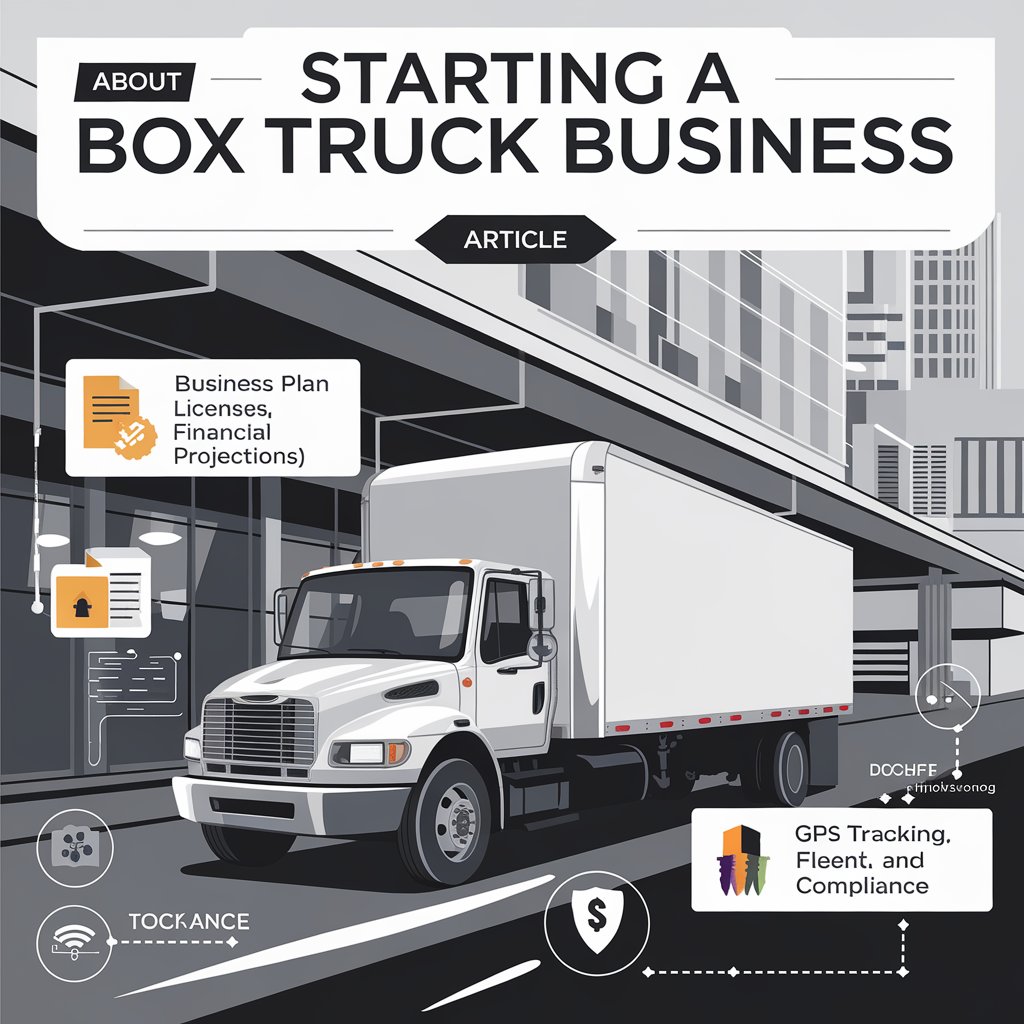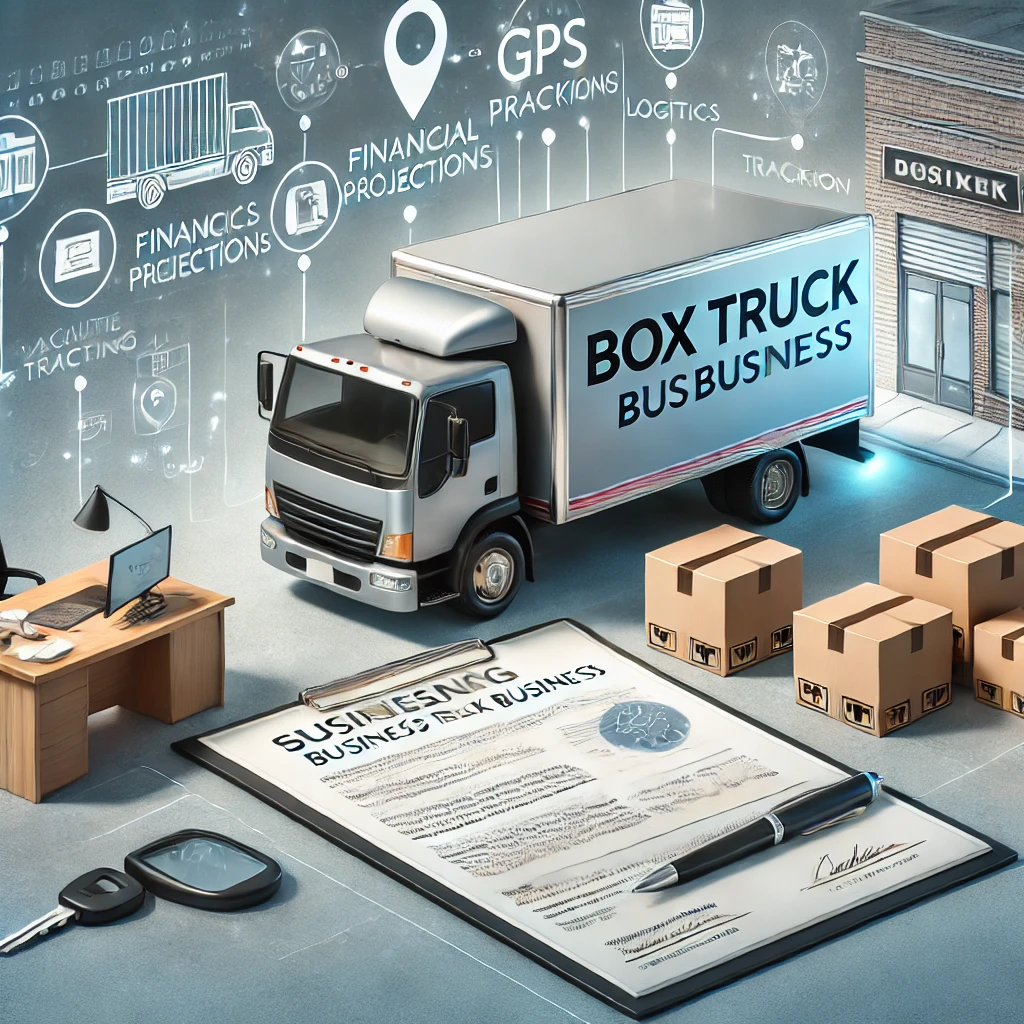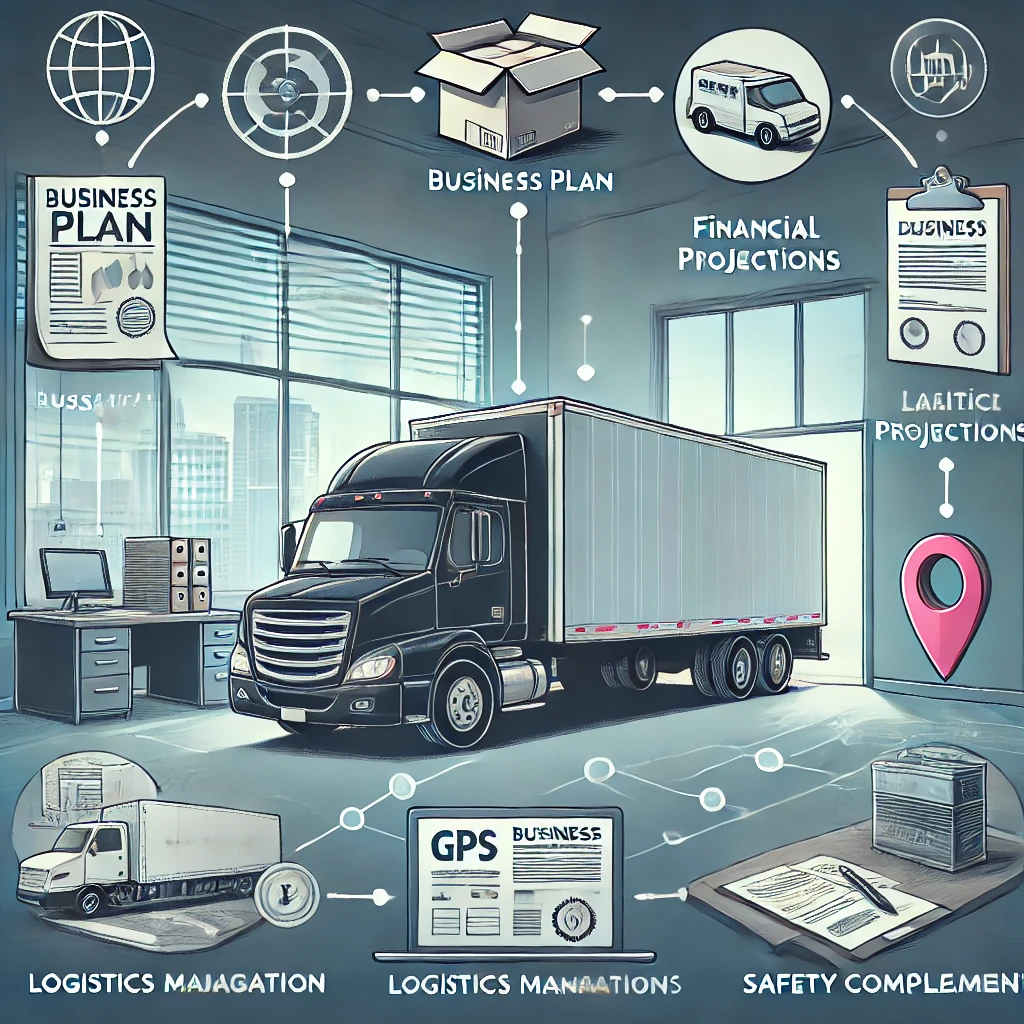How to Start a Box Truck Business: A Comprehensive Guide
Launching a box truck business can be a rewarding venture, especially in a world where transportation and logistics services are in high demand. Whether you’re delivering local goods, offering long-haul transport, or managing specialized cargo, a successful box truck business requires careful planning and execution. This guide will walk you through the essential steps to create a sustainable and profitable operation, from developing a solid business plan to ensuring compliance with industry regulations. By following these steps, you’ll set your business up for long-term success and growth.

1. Develop a Business Plan
- Define your services (local delivery, long-haul transport, specialized cargo, etc.)
- Conduct market research to identify demand and competition
- Create financial projections including startup costs, operating expenses, and revenue forecasts
- Determine your pricing strategy
2. Legal and Administrative Steps
- Choose a business structure (LLC, sole proprietorship, corporation)
- Register your business with state authorities
- Obtain an Employer Identification Number (EIN) from the IRS
- Apply for necessary licenses and permits:
- Commercial Driver’s License (CDL) if operating larger trucks
- USDOT Number and MC Number for interstate operations
- State-specific permits
3. Secure Financing to Start a Box Truck Business
- Calculate startup costs (truck purchase/lease, insurance, licenses, initial operating capital)
- Explore financing options:
- Business loans
- Equipment financing
- Personal savings
- Investors or partners

4. Acquire Your Box Truck(s)
- Decide between buying or leasing
- Choose the right size and type of box truck for your intended services
- Consider new vs. used trucks
- Ensure compliance with emissions and safety standards
5. Obtain Necessary Insurance
- Commercial auto insurance
- Cargo insurance
- General liability insurance
- Workers’ compensation (if hiring employees)
6. Set Up Operations Box Truck Business
- Establish a base of operations (home office or commercial space)
- Implement a system for booking and managing jobs
- Set up accounting and invoicing systems
- Develop safety and maintenance protocols

7. Build Your Client Base
- Create a marketing strategy:
- Develop a professional website
- Utilize social media platforms
- Network with potential clients (e.g., local businesses, moving companies)
- Consider partnering with online freight boards or load matching services
- Offer competitive rates and reliable service to build a reputation
8. Hire and Train Staff (if expanding beyond owner-operator model)
- Recruit qualified drivers
- Conduct background checks and verify licenses
- Provide comprehensive training on safety procedures and company policies
9. Implement Technology Solutions
- GPS tracking systems for fleet management
- Electronic logging devices (ELDs) for hours of service compliance
- Mobile apps for efficient communication and job management

10. Ensure Compliance and Safety
- Stay updated on DOT regulations
- Implement regular vehicle maintenance schedules
- Conduct periodic safety training for all drivers
11. Manage Finances Carefully
- Keep accurate records of income and expenses
- Set aside money for taxes and unexpected expenses
- Consider hiring an accountant familiar with the trucking industry
12. Plan for Growth
- Continuously assess market demands and adjust services accordingly
- Consider expanding your fleet as business grows
- Explore opportunities for diversification (e.g., adding different types of trucks or services)

Tips for Success
- Prioritize reliability and punctuality to build a strong reputation
- Focus on excellent customer service
- Stay flexible and adaptable to changing market conditions
- Network within the industry to find opportunities and stay informed
- Continuously educate yourself on industry trends and best practices
Common Challenges and Solutions
- Challenge: High fuel costs Solution: Implement fuel-efficient driving techniques and consider fuel card programs
- Challenge: Finding consistent work Solution: Diversify your client base and consider long-term contracts
- Challenge: Maintenance issues Solution: Establish a rigorous preventative maintenance schedule
- Challenge: Regulatory compliance Solution: Stay informed and consider using compliance management software
Starting a box truck business requires careful planning and execution, but can be a rewarding venture in the growing logistics and transportation industry. By following these steps and continuously adapting to market needs, you can build a successful and sustainable box truck
